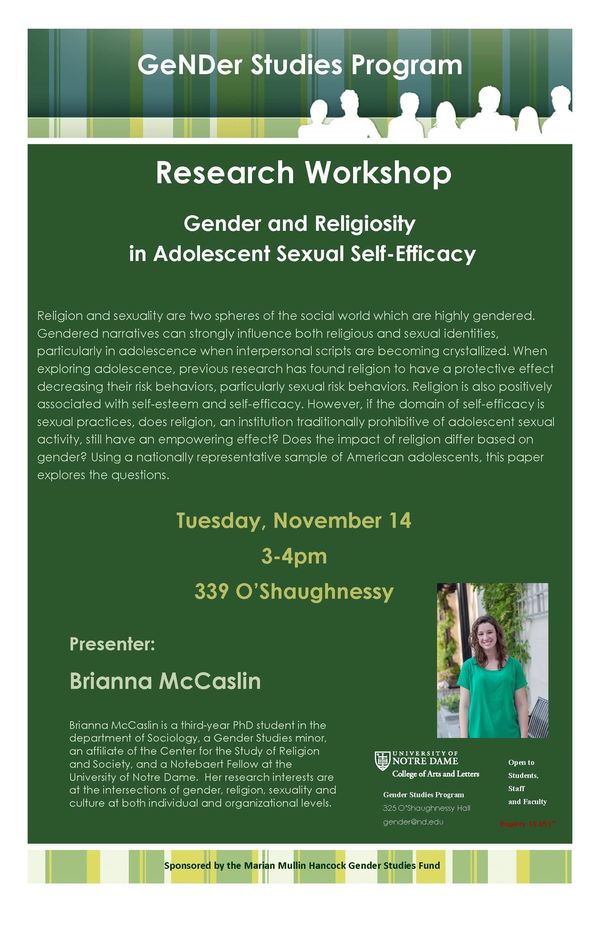
Religion and sexuality are two spheres of the social world which are highly gendered. Gendered narratives can strongly influence both religious and sexual identities, particularly in adolescence when interpersonal scripts are becoming crystallized. When exploring adolescence, previous research has found religion to have a protective effect decreasing their risk behaviors, particularly sexual risk behaviors. Religion is also positively associated with self-esteem and self-efficacy. However, if the domain of self-efficacy is sexual practices, does religion, an institution traditionally prohibitive of adolescent sexual activity, still have an empowering effect? Does the impact of religion differ based on gender? Using a nationally representative sample of American adolescents, this paper explores the questions.
I find that sexual self-efficacy is strongly influenced by gender and religiosity, though different dimensions of sexual self-efficacy are differentially impacted. Generally women report higher levels of efficacy, but this varies by type of religiosity. Private religiosity is more helpful for adolescent women’s sexual self-efficacy than public religiosity. Understanding which pieces of being religious help or hinder sexual self-efficacy, and by extension sexual health practices, education and intervention efforts by health professionals can be improved and created in a way respectful of religious traditions.
Gender and Religiosity in Adolescent Sexual Self-Efficacy
Research Workshop Presenter: Brianna McCaslin
November 14
3-4pm
339 O'Shaughnessy
Brianna McCaslin is a third-year PhD student in the department of Sociology, a Gender Studies minor, an affiliate of the Center for the Study of Religion and Society, and a Notebaert Fellow at the University of Notre Dame. Her research interests are at the intersections of gender, religion, sexuality and culture at both individual and organizational levels. Some of her current research topics include religious identity negotiation around contraceptive decision making of practicing Catholic women and concepts of self and stigma through representations of women’s bodies in the online body positivity movement.
In order to advance the program’s commitment to inter-disciplinary research and inquiry into the subject of gender, the Gender Studies Program is pleased to announce an upcoming series of research workshops. The events will include presentations by advanced undergraduates majoring in Gender Studies as well as graduate students and faculty members from a variety of departments who work in the area of gender and sexuality. The workshop will begin with the week’s presenter giving a brief lecture on his or her current research in the field, followed by a seminar-style discussion.
Workshops are held on Tuesdays from 3:00pm-4:00pm and Thursdays from 5:00pm – 6:00 pm in 339 O’Shaughnessy unless otherwise specified below. The Joint Panels will be held on Fridays from 4:00pm-6:00pm in 119 O'Shaughnessy.
If you would like to reserve a date for a presentation at one of the Research Workshops please contact one of our Research Workshop coordinators: Stacy Sivinski or Dominique Vargas.
Sponsored by the Marian Mullin Hancock Gender Studies Fund.
Additional Research Workshops information
Sponsored by the Marian Mullin Hancock Gender Studies Fund